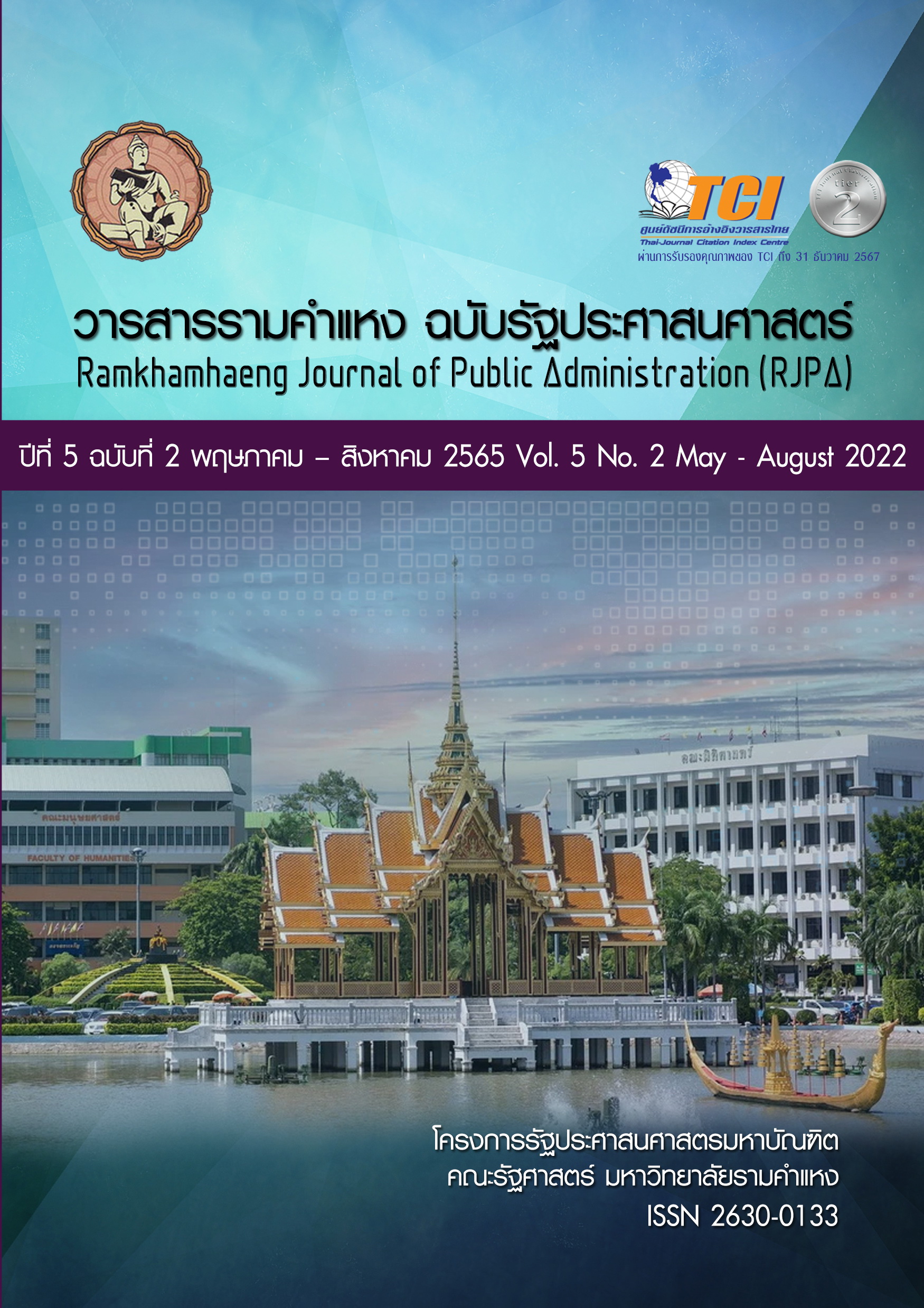The duty of memory and its relationship to history in Paul Ricoeur
Keywords:
memory, history, justiceAbstract
This article examines the idea of the duty of memory in Paul Ricoeur’s Memory, History, Forgetting. Ricoeur proposes the conception of the duty of memory as a duty of justice. For Ricoeur, memory is not what we remember individually, but memory is a representation of the past that requires support from the community. And if memory requires support from the other, what one remembers can be justice or injustice to the other. Also, memory is essentially related to history, because it is only in history that one can affirm the truth with others. In this way, history allows us to recognize traumatic memories that are not remembered by the community. In conclusion, this article argues that the duty of memory is not a duty to remember a particular fact, but it is a duty to do justice to the memory of the other.
References
“พ.ร.บ.นิรโทษกรรมแก่ผู้ซึ่งกระทำความผิดเนื่องในการชุมนุมในมหาวิทยาลัย ธรรมศาสตร์ระหว่างวันที่ 4 ถึงวันที่ 6 ตุลาคม 2519 พ.ศ. 2521,” ราชกิจจานุเบกษา, 95(87), 1-3.
ธงชัย วินิจจะกูล. (2539) ความทรงจำกับประวัติศาสตร์บาดแผล กรณีการปราบปรามนองเลือด 6 ตุลา 19. รัฐศาสตร์สาร 19(3), 15-49.
Allen, R. E. (1959). Anamnesis in Plato's "Meno and Phaedo". Review of Metaphysics 13(1), 165 - 174.
Braudel, Fernand. (1972-1973). The Mediterranean and the Mediterranean world in the age of Philip II (Vols.1-2) (Sian Reynolds, Trans.). New York: Harper and Row.
Dosse, François. (1994). New History in France (Peter V. Conroy, Trans.). Chicago: University of Illinois Press.
Durkheim, Emile. (1938). The Rules of Sociological Method (W. D. Halls, Trans.). New York: The Free Press.
Friedlander, Saul (ed.). (1992). Probing the limits of representation: Nazism and the Final Solution. London: Harvard University Press.
Golsan, Richard J. (2001). History and the “Duty to Memory” in Postwar France The Pitfalls of an Ethics of Remembrance. In Howard Marchitello (ed.), What Happens to History (pp. 23-40). New York: Routledge.
Halbwachs, Maurice. (1980). The Collective Memory (Francis J. Ditter and Vida Yazdi Ditter, Trans.). New York: Harper & Row.
Halbwachs, Maurice. (1992). On Collective Memory (Lewis A. Coser, Trans.). Chicago: University of Chicago Press.
Husserl, Edmund. (1969). Cartesian Meditations: An Introduction to Phenomenology (Dorion Cairns, Trans.). The Hague: Martinus Nijhoff.
Husserl, Edmund. (1970). The Crisis of European Sciences and Transcendental Phenomenology (David Carr, Trans.). Evanston, Ill.: Northwestern University Press.
Husserl, Edmund. (1991). On the Phenomenology of the Consciousness of Internal Time (1893-1917) (John B. Brough, Trans.). The Hague: Martinus Nijhoff.
Le Goff, Jacques. (1992). History and Memory (Steven Rendall and Elizabeth Clama, Trans.). New York: Columbia University Press.
Nora, Pierre. (1996). Realms of Memory: The Construction of the French Past (Lawrence D. Kritzman, ed., Arthur Goldhammer, Trans.). New York: Columbia University Press.
Ricoeur, Paul. (1984-1988). Time and Narrative (Vols.1-3) (Kathleen McLaughlin and David Pellauer, Trans.). Chicago: University of Chicago Press.
Ricoeur, Paul. (2004). Memory, History, Forgetting (Kathleen Blamey and David Pellauer, Trans.). Chicago: University of Chicago Press.
Rousso, Henry and Eric Conan. Vichy: An Ever-Present Past (Nathan Bracher, Trans.). Hanover: University Press of New England.
Schutz, Alfred. (1967). The Phenomenology of the Social World (George Walsh and Fredrick Lehnert, Trans.). Evanston, Ill.: Northwestern University Press.
Thongchai Winichakul. (2020). Moments of Silence: The Unforgetting of the October 6, 1976, Massacre in Bangkok. University of Hawaii Press.
Todorov, Tzvetan. (2001). The Uses and Abuses of Memory. In Howard Marchitello (ed.), What Happens to History (pp.11-22). New York: Routledge.
Vidal-Naquet, Pierre. (1993). Assassins of memory: Essays on the denial of the Holocaust (Jeffrey Mehlmann, Trans.). New York: Columbia University Press.
Downloads
Published
How to Cite
License
Copyright (c) 2025 เจษฎากร บุญครองธรรม

This work is licensed under a Creative Commons Attribution-NonCommercial-NoDerivatives 4.0 International License.



